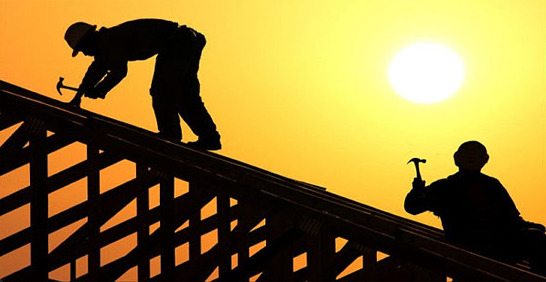A joint estimate by the World Health Organisation and the International Labour Organization showed that nearly one in three deaths from non-melanoma skin cancer is caused by working under the sun.
The research released in Environment International found that outdoor workers carry a large and increasing burden of non-melanoma skin cancer and calls for action to prevent this serious workplace hazard and the loss of workers’ lives it causes.
According to the joint estimates, 1.6 billion people of working age (15 years or older) were exposed to solar ultraviolet radiation while working outdoors in 2019, equivalent to 28 per cent of all working-age people.
In 2019 alone, almost 19,000 people in 183 countries died from non-melanoma skin cancer due to having worked outdoors in the sun.
The estimates showed that 65 per cent of them were male.
The Director-General of the World Health Organisation, Dr. Tedros Ghebreyesus, said, “Unprotected exposure to solar ultraviolet radiation at work is a major cause of occupational skin cancer.
“But there are effective solutions to protect workers from the sun’s harmful rays, and prevent their deadly effects.”
The estimates establish occupational exposure to solar ultraviolet radiation as the work-related risk factor with the third highest attributable burden of cancer deaths globally. Between 2000 and 2019, skin cancer deaths attributable to occupational exposure to sunlight almost doubled (increasing by 88 per cent from 10,088 deaths in 2000 to 18 960 deaths in 2019).
According to ILO Director-General, Gilbert Houngbo, a safe and healthy working environment is a fundamental right at work.
“Death caused by unprotected exposure to solar ultraviolet radiation while working is largely preventable through cost-effective measures. It is urgent that governments, employers and workers and their representatives work together in a framework of well-defined rights, responsibilities and duties to reduce the occupational risk of UV exposure. This can save thousands of lives every year,” Houngbo noted.
As skin cancer develops after years or even decades of exposure, WHO said workers must be protected from solar ultraviolet radiation at work from young working age onwards.
The body also urged governments to establish, implement and enforce policies and regulations that protect outdoor workers from sun-induced skin cancer by providing shade, shifting working hours away from the solar noon, providing education and training, and equipping workers with sunscreen and personal protective clothing (such as broad-brimmed hat, long-sleeved shirts and long trousers).


